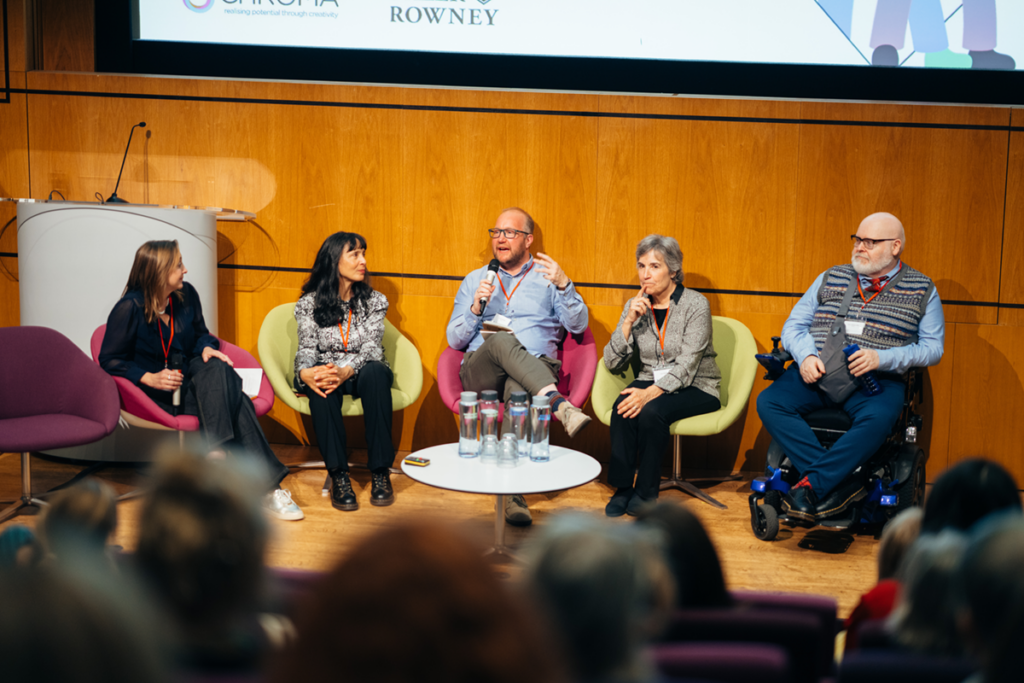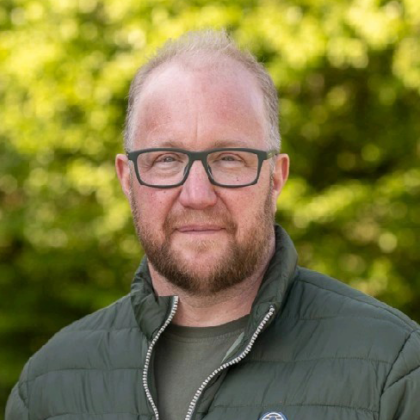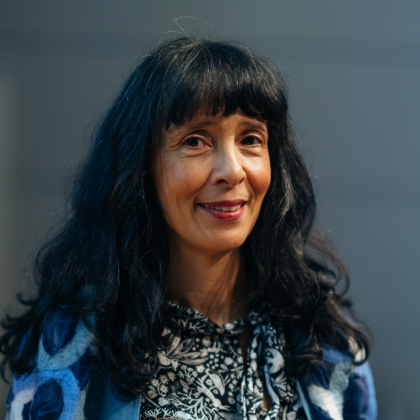Top tips for NIHR research pathways
Article
In this conversation, our Vice-Chair Michèle Wood asks Dr Jed Jerwood about his path into research through National Institute for Health and Care Research (NIHR) funding.

What prompted you to consider NIHR funding?
I wanted to get involved in research and was looking for some research training as I felt my clinical training wasn’t research-oriented enough. I initially looked at doctoral level awards from the National Institute for Health and Care Research (NIHR) but realised I couldn’t make the jump from clinical master’s level training to doctoral level health research without more education and experience. So, I did an NIHR-funded clinical academic internship and then was lucky enough to be successful in gaining a place on an NIHR-funded Master’s in Clinical Research, before going on to doctoral level studies.
What was the application process like?
I initially applied for a studentship, which was locally co-ordinated at the time, but I was unsuccessful. I then applied for the Integrated Clinical Academic internship programme and got a place. The application process at this level was also relatively straightforward but rigorous and I got a lot of helpful feedback in both applications and interviews.
As I have progressed, the application process has got more and more lengthy and I found having funding and time is essential to prepare an application at doctoral or post-doctoral level. The NIHR make awards available to support this in the form of development and skills awards, pre-application support funds and local bridging schemes.
Given the funding is highly competitive, what do you think made your application stand out?
As a smaller profession, art psychotherapists/therapists are in the minority of people applying for these awards, so I think I stood out amongst mainly nurses, physiotherapists and occupational therapists. It was time to use my profession as an advantage not disadvantage!
I am a researcher in health inequalities and death and dying, and at that stage I was looking at the experiences of people in the mental health system. This is not a well-researched area in palliative care and I was able to link my research to national priorities in both palliative care and mental health, which really helped. I think as it was born from clinical observations it also made sense and I was passionate about it and that helped in the application process.
How did getting on the NIHR-funded research scheme affect your work with patients and colleagues?
It has only enhanced my clinical practice! My methodological interests lie in participatory and co-design methods and I have been able to bring this into my clinical work. In addition, I have been able to bring research skills and an evidenced-based approach into my work in clinical teams.
It also took me away from direct clinical work for a period of time and this is a consideration for aspiring researchers. I enjoyed being with patients, service users and carers in a different way as a researcher and therapist and I think they complement each other, but being involved in research brings its own timeframes, boundaries and ways of being which are different from being a therapist.
How did it affect you personally?
It has kept me motivated and engaged, and it has helped me stay working in a system which can sometimes be challenging and frustrating! I feel like I am making a difference in a different way, and I enjoy the way research makes me think differently. I have enjoyed seeing how research can improve practice, and improve it quite quickly. It is very satisfying to witness how different methodological approaches give people opportunities to develop their own skills, to level out traditional research and clinical hierarchies, and to influence practice.
I feel like I am making a difference in a different way and I enjoy the way research makes me think differently.
I have been fortunate enough to be able to travel to share my research and to learn from teams in other parts of the world. This has deepened my knowledge and skills and helped me to understand how different healthcare and research systems work. I have particularly enjoyed spending time with research teams where indigenous and first nations people are part of the research team.
Do you have any tips about managing the challenges of being an academic clinician?
You have to be tenacious! I would recommend getting your manager’s support, which might involve helping them to understand the value of having researchers in their team.
I would also recommend making good friends with your research and innovation department if you have one. And for people working outside the NHS or as lone workers – collaborate! Much of my work in recent years has been in collaboration with a local hospice, not within my NHS Trust. Networking is key – you can’t be a researcher on your own!
What are your top tips of things not to do when considering or undertaking an NIHR application?
Don’t try and do it alone! It is definitely a team task. Find more experienced people to get advice from, link into research and development teams in the clinical setting if you have them, make connections with academic mentors – the best way to do this is to look at the research area you are interested in and work out who is carrying out interesting work and publishing interesting papers and approach them!
Don’t do them last minute – these applications can’t be rushed!
Don’t work in isolation – link up with local research networks and support systems such as the Community for Allied Health Professions Research (CAHPR), the Research Support Service (RSS) and local academic networks; sign up to NIHR newsletters; attend NIHR information sessions.
Don’t only look at NIHR – there are other funders, including major charities and funding bodies, such as Wellcome and the Medical Research Council, which also fund AHP research.
Do think about the support schemes available to prepare for the larger award applications. They can be really helpful.
Finally, don’t be afraid to undertake research training at a level which might feel lower than you need – our clinical training doesn’t always equip us to carry out research at this level in the health and social care system. I really benefitted from undertaking the internship and then a funded Master’s by Clinical Research before embarking on doctoral level studies.
How would you advise anyone fortunate enough to be shortlisted for interview for NIHR funding?
Prepare! Get advice, link up with someone who already has an NIHR award. Have a mock interview. And don’t be afraid to know your research proposal – many of us can be introverted and not very good at showcasing our skills and knowledge. Get feedback!
Can someone get in touch with you to discuss this further?
Yes of course! I am happy to talk to people who are interested in research and am part of wider networks of other arts therapists who are research active, as well as other professionals.
You can email me at J.jerwood@nhs.net or find me on LinkedIn.
Journal newsletter


